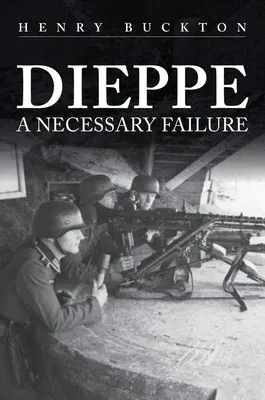The Allied assault on the German-occupied port of Dieppe in France,
code-named Operation Jubilee, took place on 19 August 1942. It was a
battle that lasted for less than ten hours but it has gone down in
history as a military disaster, often spoken of in the same manner as
the Charge of the Light Brigade and Gallipoli. The German defences had
been underestimated. The numbers killed, wounded and taken prisoner at
Dieppe were shockingly high and none of the main objectives were
realised. The Third Reich considered the raid as a military joke and it
provided a textbook of 'what not to do' in future amphibious operations.
Dieppe was the largest tri-service operation ever mounted up until that
point, and even if the planning for the operation was woefully
inadequate, it showed that the three services could coordinate their
movements under one command. Many believe that Dieppe should not be
looked upon as an isolated incident because then its purpose is totally
obscured by its terrible cost. Put into context, it was one in a series
of raids between Dunkirk and D-Day designed to test the defences of
Hitler's Atlantic Wall, the most famous and successful being the attack
on St Nazaire, which is still considered to be the greatest Commando
raid of all time. Author Henry Buckton has searched the voluminous
records of interviews with Canadian Dieppe veterans collected by
Historica Canada to shed new light on this terrible - but perhaps
necessary - failure.

